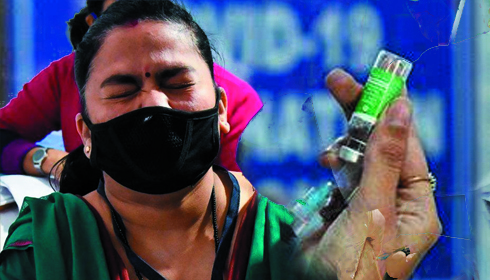
Multi Institution Study Seeks to Unreveal Vaccine Trust in India's Marginalised Communities
A groundbreaking study has been published in the Journal of Communication in Healthcare, which investigates the complex dynamics of trust and decision-making surrounding COVID-19 vaccines within India's transgender and disability communities. Led by a team of experts, including Sharin D'souza and Bhakti Ghatole, this research sheds light on the historical marginalization and present-day trust deficits that influence vaccine perceptions. It provides crucial insights into this critical issue and highlights the urgent need for effective communication strategies to address these challenges.
The study, conducted across various institutions in India, employed a participatory approach to understand the role of trust in vaccine decision-making. Twenty-four community representatives, identifying as transgender individuals or persons with disabilities, along with 21 key informants such as vaccine program managers and community advocates, were interviewed. Through an inductive thematic analysis, the researchers uncovered significant insights.
Fear of side effects, tailored to the specific needs of the communities, and deep-seated mistrust of health and government systems emerged as primary factors influencing decision-making processes. Past negative experiences with the health system further fueled scepticism, creating environments where information and misinformation coexist and influence perceptions.
The study identified four distinct pathways shaping vaccine decision-making within these marginalised communities. Participants navigated their doubts by engaging with diverse sources of influence, showcasing decision-making patterns that are dynamic, context-dependent, and intersectional.
The findings of the study hold critical implications for public health strategies aimed at improving vaccine acceptance and uptake among marginalised communities. Tailored vaccine communication strategies are urgently needed to address the unique concerns and needs of transgender and disabled individuals. Collaboration and engagement with community members and influencers are essential to ensuring that vaccine information is accessible and relevant.
Furthermore, the study advocates for the inclusion of transgender and disabled individuals in vaccine trials, emphasising the importance of equitable representation in research and decision-making processes. Long-term investment in meeting the needs of marginalised communities is crucial to dismantling cycles of marginalisation and distrust, ultimately improving vaccine acceptance and uptake.
This research underscores the importance of understanding and addressing the nuanced factors shaping vaccine decision-making among marginalised communities. By fostering trust and addressing specific concerns, public health interventions can become more inclusive and effective in combating the COVID-19 pandemic in India and beyond.